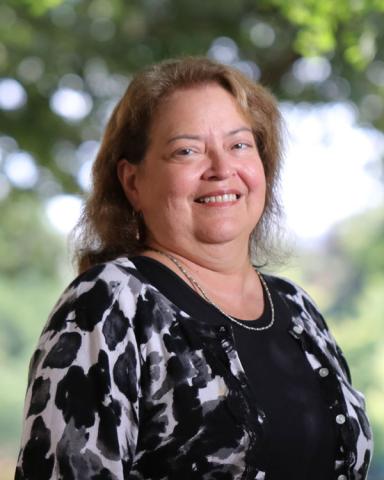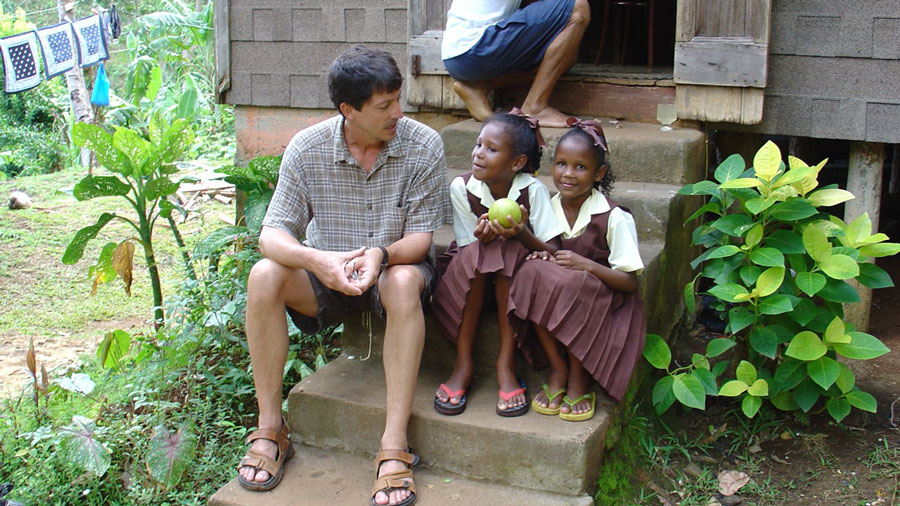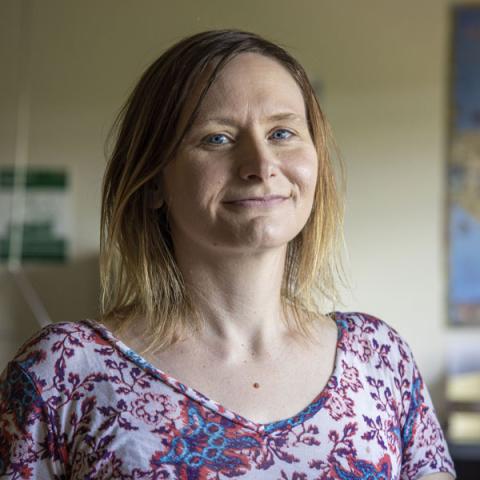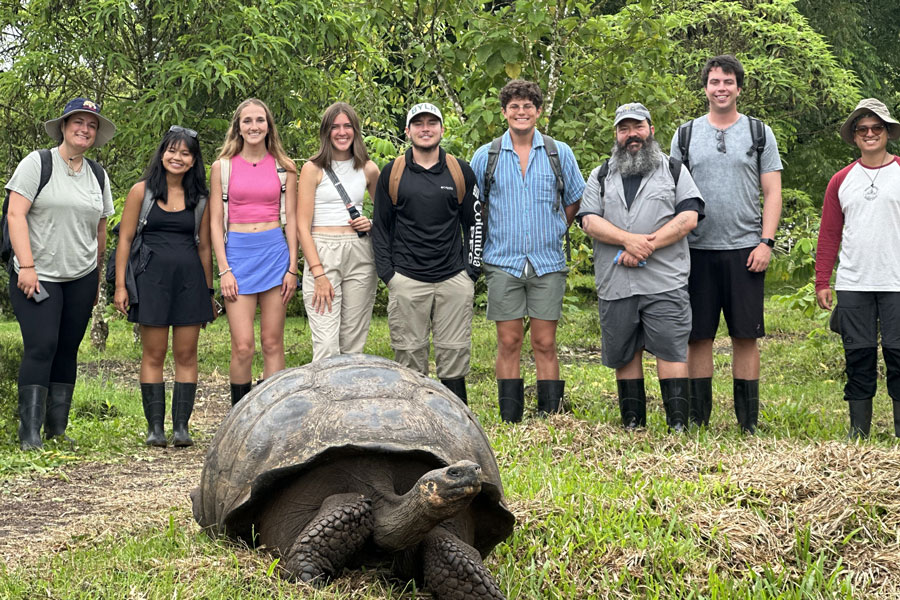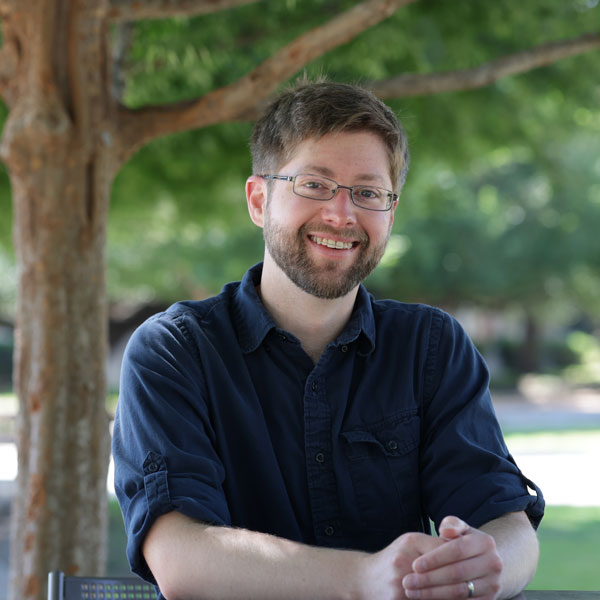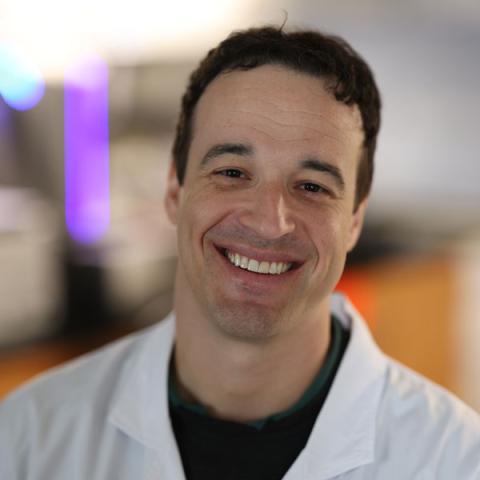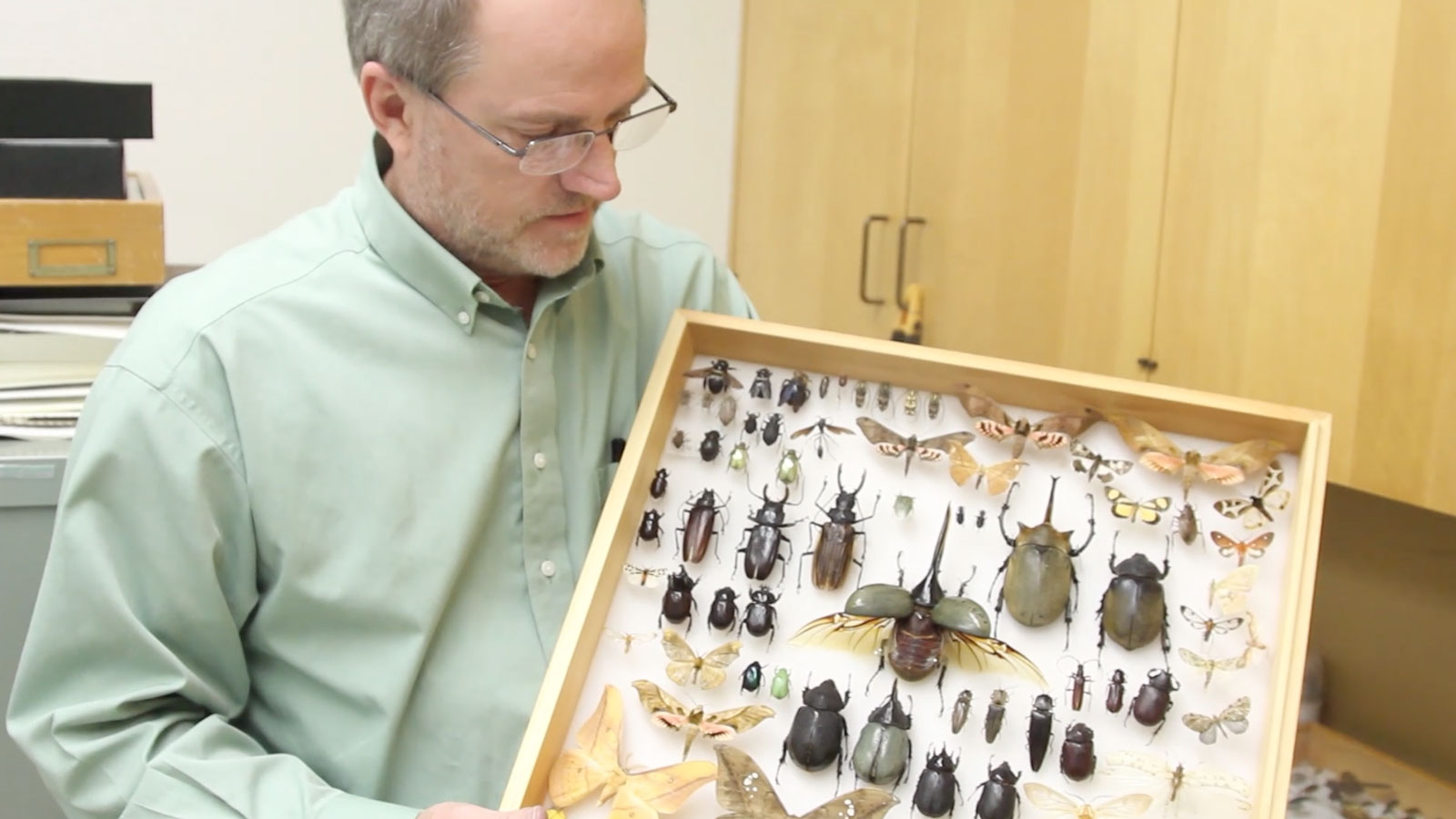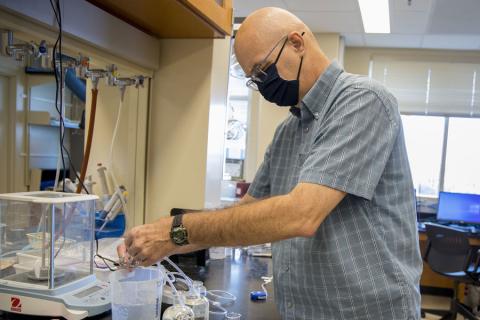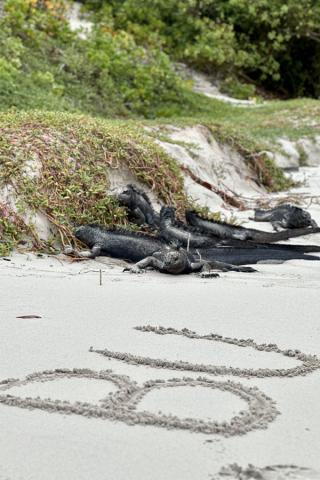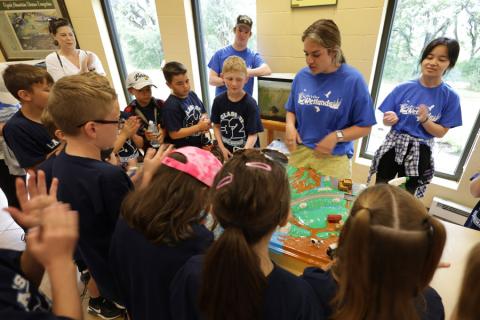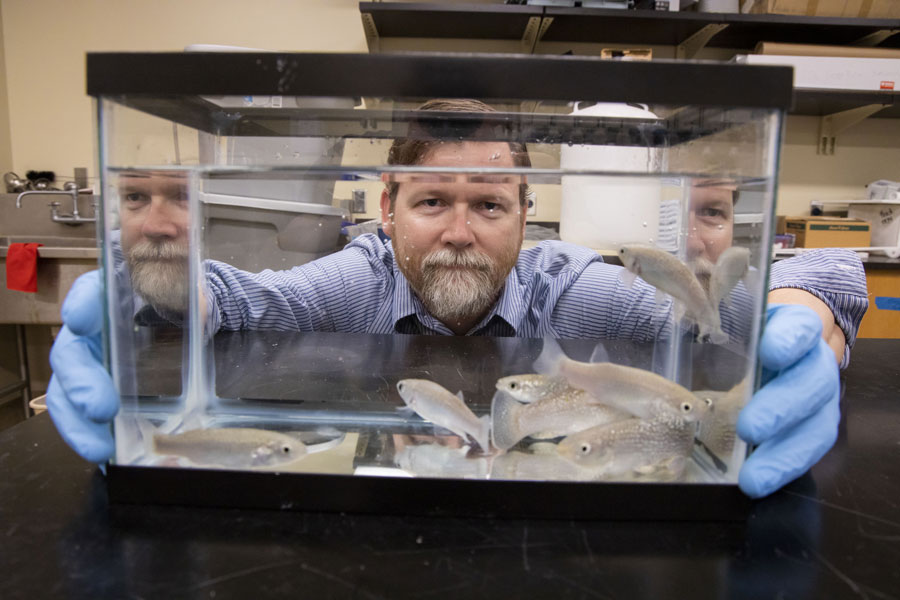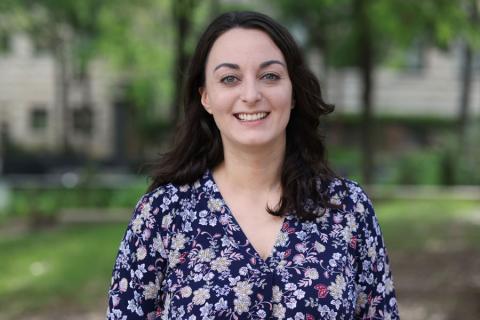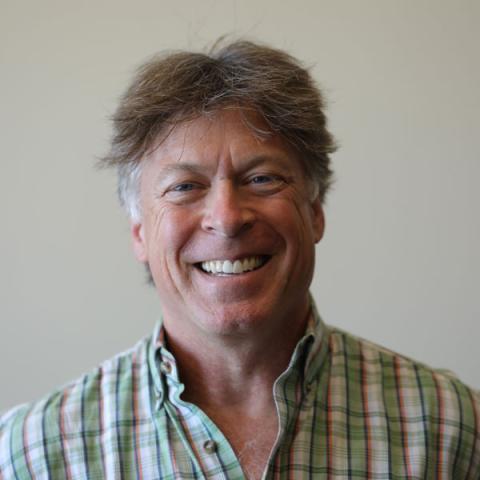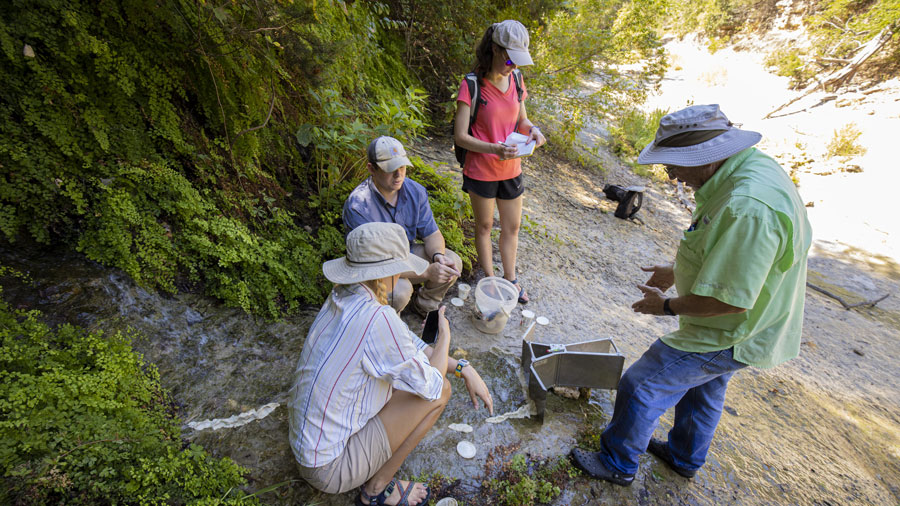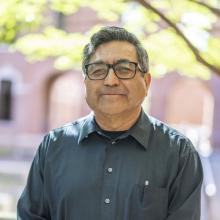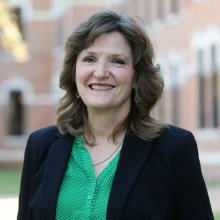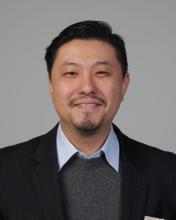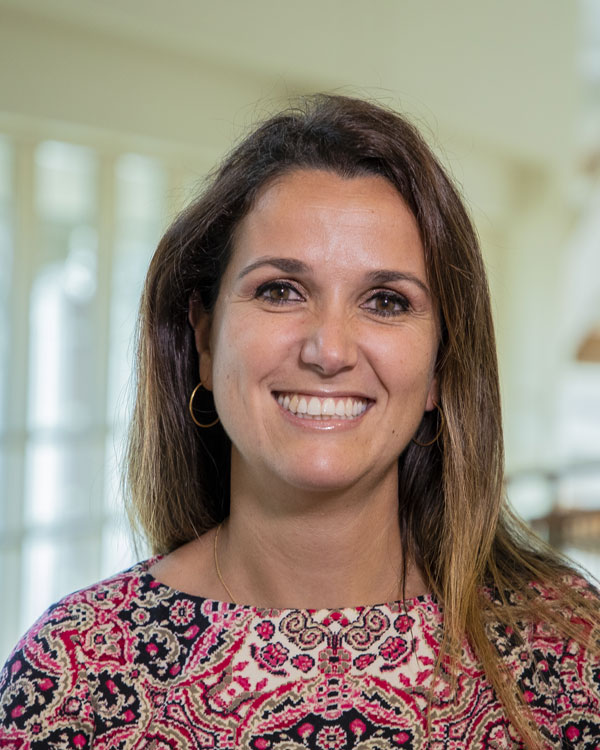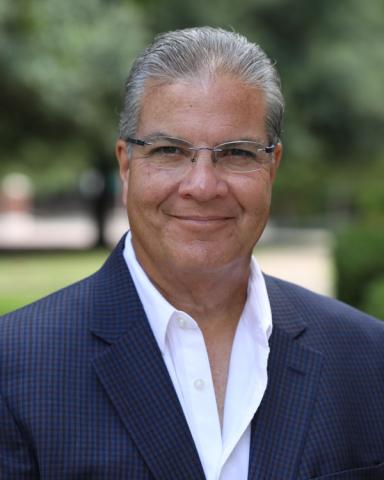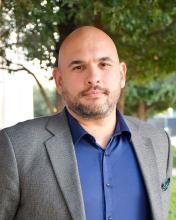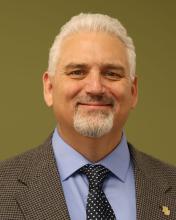Baylor in Latin America
A look at what kind of research and collaborations A&S faculty are working on in Latin America
The College of Arts & Sciences is well-positioned to make an important contribution to the Baylor in Latin America initiative in Illuminate, since faculty from across the College already have long experience with and close collaborators in research being done there. While the total number of involved faculty is larger, these are the brief stories of 26 faculty members from nine different Arts & Sciences departments who are busy making an impact in Latin American research.
ANTHROPOLOGY
Dr. Sara Alexander
Professor of anthropology
Dr. Alexander has spent many years in Belize researching issues involving climate change and food security. “In the face of climate uncertainty, farmers seek to reduce their vulnerability by using multiple forms of knowledge in combination with material technologies, institutional supports and social networks,” she said. “Agricultural practice is uniformly grounded in a panorama of shared worldviews, social connectedness, core moral values and cultural norms. In this perspective, farming decisions engage the farmer’s partiality and socialization in addition to their technical skills and resource endowment. My research in the Cayo District of Belize involves Mennonite, Maya and Amish communities, focusing on several components of performative agriculture, including religious beliefs and how they relate to the nature of the scientific knowledge farmers use in their decision-making processes around adjustments to climate change. Elucidating the social processes whereby scientific information is accessed and processed is essential to understanding how such information is assimilated into the knowledge base that supports adaptive adjustments in agricultural performance. Research shows that attitudes toward climate predictions, including beliefs and values, are as important as comprehension in whether farmers use weather predictions and other scientific information.”
Dr. Garrett Cook
Professor of anthropology
Dr. Cook conducted ethnographic field work in Maya villages in Highland Guatemala in the middle 1970s, and then again in 1990-1994 and 2007-2013. He also did field work in a Yucatec village in Belize from 1990-1994. “All of this work has focused on how the religious life of the communities, both Christian congregational religion and traditional syncretized Cristo-pagan religion, is organized, and how it has changed over four decades,” Cook said. “The work involved 14 Baylor field schools and produced numerous journal articles and book chapters, two books on Mayan religion and expressive culture, and a grant-supported video on a masked dance in which the performers do death-defying tricks on a tightrope above the plaza to honor the patron saint and their ancestors. I also served as an advisor on and was featured in a professional video documentary by Robin Blotnik titled Gods and Kings, which interprets the dance dramas of 21st century indigenous Guatemala.” While Cook is no longer conducting active field research in Central America, he continues to present papers at academic conferences and publish his unreported findings from almost 50 years of field research in Guatemala and Belize, such as an article about pilgrimages among the Aztec and Maya descendant populations which was published in August 2023.
Dr. Mark Flinn
Professor of anthropology
Dr. Flinn is a biomedical anthropologist who works in Amazonia and Dominica in Latin America. His primary research passion is to understand how and why social relationships influence child health. “I am especially interested in our complex human family relationships,” he said. “I focus on two interrelated areas –– stress and the family. Psychosocial stress presents both an important medical problem and an evolutionary puzzle. Given the significant health costs associated with chronic physiological stress response, it is unclear why natural selection would have favored links between the psychological mechanisms that assess social challenges, and the neuroendocrine mechanisms that regulate stress physiology.” Flinn’s current research efforts in Latin America involve an ongoing 35-year study of childhood stress, family relationships and health in a rural Caribbean community. “This research involves longitudinal monitoring of (a) hormone and immune function from saliva and urine samples, (b) ethnographic observation of child activities and social environment and (c) measures of health, including medical histories, bi-weekly health surveys, anthropometric measurements, and parasite exams,” he said. “The stressful effects of the recent Hurricane Maria are of immediate importance.”
Dr. Julie Hoggarth
Associate professor of anthropology
Dr. Hoggarth has spent many years studying the ancient Maya civilization in Belize. Her recent research, funded by a joint grant with the Arts and Humanities Research Council of the United Kingdom and the National Science Foundation grant based in the United States, focuses on understanding adaptations of the ancient Maya during periods of climatic stasis and stress from the Classic to Postclassic periods (250-1500 CE). Working as part of an international team of researchers, she will be working on reconstructing changes in agriculture and landscape use in Belize over time. “We will identify the types of crops being grown in ditched agricultural fields around the site of Baking Pot, located in western Belize, in addition to using changes in pollen to identify evidence of disturbance from natural vegetation to a more managed agricultural landscape,” Hoggarth said. The archaeological and paleoecological evidence will eventually be combined to gain a more thorough perspective of the ways the ancient Maya adapted and responded to climatic change.
Dr. Michael Muehlenbein
Chair and professor of anthropology
Dr. Muehlenbein works in the field of global health, including emerging infectious diseases and “One Health.” The core concepts of One Health is that (1) we are deeply connected with our environment, (2) our health is influenced by how the health of nonhuman animals (wildlife and livestock) is managed throughout the world and (3) that our health ultimately affects the sustainability of ecosystems. He has begun a collaboration with Universidad San Francisco de Quito (USFQ) in Ecuador, resulting in a research-based study abroad experience for undergraduate students interested in global health issues. In this study abroad Muehlenbein leads in the Galapagos Islands (located about 600 miles off the coast of Ecuador), students participate in data collection focusing on traveler health and their attitudes and behaviors toward wildlife found there (such as tortoises, marine iguanas and sea lions). Tourists visiting the islands, including those with deep concern for environmental issues, frequently exhibit temporary loss of situational awareness and loss of inhibition with corresponding relaxed attitudes toward safety. Furthermore, tourists are often infectious while traveling, placing endangered species at risk of disease spillover. Muehlenbein hopes that the Baylor-USFQ relationship will lead to long-term research and educational opportunities for Baylor students in what he calls “the incredible natural laboratory” of the Galapagos Islands.
Dr. Austin Reynolds
Assistant professor of anthropology
The research being done in Dr. Reynolds’ laboratory at Baylor uses genomic technologies –– which focus on the structure, function, evolution, mapping, and editing of an organism’s complete set of DNA –– as well as computational methods to answer questions about human history and disease risk. “We have several collaborations with researchers and indigenous communities in Mexico to understand how people have genetically adapted to their environments over the past several thousand years,” he said. “We are investigating the functional impact of these genetic variants on human physiology and health. We are also collaborating with archaeologists and Indigenous communities in Belize to learn about Maya history using paleogenomic techniques to recover ancient DNA from individuals who lived during the past 3,000 years.”
Dr. Samuel Urlacher
Assistant professor of anthropology
Dr. Urlacher has conducted extensive research in Latin America, primarily in Ecuador, involving the nutrition, health and growth of children in indigenous communities there. He studies “global variation in childhood development and the early life origins of metabolic health disparities from an evolutionary and bioenergetic perspective.” He is particularly interested in how children allocate calories to competing physiological tasks such as brain development, immune activity and growth, and what the impact of early adversity is on lifetime metabolic disease involving risks such as obesity and chronic inflammation. Dr. Urlacher has begun a new project in Chile that is investigating “the impact of government transition of families from informal settlements to subsidized housing on child development and health. A lot of our current work focuses on the energetics of the digestive tract and the brain as drivers of variation in child development and lifelong health.”
ART AND ART HISTORY
Greg Lewallen
Senior lecturer in art and art history
Greg Lewallen is a visual artist who travels extensively to remote areas of the world, creating art in response to the experiences he has with people and wildlife during his travels. Some of his drawings result from his expeditions collecting insects in Latin America from Mexico to Peru, where the insects become the subjects of the work. “I describe the adventure to find that insect by writing the stories directly onto the drawings. Being an artist, my creative work is my research, and the expeditions to collect the specimens are essential to my work,” he said. Lewallen has collected and drawn insects in every Central American country except Costa Rica, and now has more than 100 completed drawings in a series he calls “Insect Narratives.” “I spend my time camped in the jungles with generators and ultraviolet lights that attract nocturnal insects, or I stay with Indigenous people in their homes,” he said. “Many of the stories that I write on my drawings are the stories of these people, and I use the imagery of the insect to provide a catalyst to that story. In my mind, the story is the most important part of the piece, as it conveys details of how these people live that would otherwise go untold. My artwork gives them a voice, so to speak.”
BIOLOGY
Dr. Robert Doyle
Associate chair of biology
Director for the Center for Reservoir and Aquatic Research
Dr. Doyle –– who grew up 1,000 miles up the Amazon River in the city of Manaus where his parents were Southern Baptist missionaries –– has produced an important amount of the distinguished body of Baylor aquatic scientific research being done in Latin America which dates back to the pioneering work done in Mexico over a half century by retired biology faculty member Dr. Owen T. Lind. As the current director of Baylor’s Center for Reservoir and Aquatic Research (CRASR), Doyle oversees a number of research projects in Latin America being done by Baylor faculty members. These include: (1) CRASR scientists Dr. Cole Matson, Dr. Bryan Brooks and Dr. Ryan McManamay (environmental sciences), and Dr. Doyle, Dr. Stephen Powers, Dr. Thad Scott and Dr. Karine Gil (biology) are assisting the Escuela Superior Politécnica del Litoral, a public university in Ecuador, on an ambitious evaluation of possible climate change impacts on water resources in the Galapagos; (2) Dr. Doyle and his wife, Dr. Eva Doyle of Baylor’s Robbins College of Health and Human Sciences, have led the Baylor in Brazil study abroad program for more than 15 years; (3) Dr. Matson led a study abroad program to the Galapagos Islands focused on aquatic research during the summer of 2023; (4) Dr. Brooks is actively engaging collaborative water and health research with colleagues at the Federal University of Paraná in Brazil, the National Research Council of Argentina and the National University of La Plata in Argentina, the University of the West Indies in Trinidad and Tobago, and the Tecnológico de Monterrey in Mexico; (5) Dr. Scott and Dr. Jacquelyn Duke (biology) are in the early stages of developing a research partnership with Dr. André Amado of the Universidade Federal Juiz de Fora, Brazil; and (6) Dr. Robert Doyle is exploring a research partnership with the Universidad Michoacana San Nicolás Hidalgo in Mexico, where a Baylor graduate, Dr. Mabe Rendon, is associated with the Instituto de Investigaciones sobre los Recursos Naturales (Institute for Research on Natural Resources).
Dr. Karine Gil
Lecturer in biology
Dr. Gil is part of the team from Baylor’s Center for Reservoir and Aquatic Research (CRASR) that is working with the university Escuela Superior Politecnica del Litoral in Ecuador to evaluate the aquatic ecosystems of the Galapagos Islands as a possible climate change hotspot. As part of her Modern Concepts of Bioscience course at Baylor, 90 students developed 25 different mini-research projects that introduced them to the Galapagos Islands and helped motivate them to take part in the joint program going on there. “These mini-projects covered ecology, population ecology, community ecology and biodiversity chapters,” she said. “The projects produced multiple original ideas and products that could be developed on a large scale in Ecuador. The students’ contributions supported the program objective of investigating the current biodiversity status of the freshwater ecosystems, and assessing the ecological vulnerability of lakes, lagoons and aquatic ecosystems across the coastal gradient represented by varying natural and anthropogenic conditions.” Gil said the next step will be to share these achievements with the program’s coordinators and Baylor financial supporters. “As our students take real actions on the conservation of biodiversity on the planet at the iconic Galapagos Wetlands, I hope to continue to accomplish our biology department’s goal of ‘understanding our world, and healing our world.”
Dr. Marty Harvill
Senior lecturer in biology
In 2021, Dr. Harvill collaborated with Dr. Tracey Sulak of the Department of Educational Psychology in the Baylor School of Education to create a National Science Foundation-funded program called Inclusive Biologists Exploring Active Research with Students (iBEARS). The main goal of iBEARS is to improve science knowledge among K-12 students by using Baylor science undergraduates to teach the scientific process in local schools via the online communications platform Zoom. Harvill is now working to expand the iBEARS program to Latin America. In 2020 he began leading young adults on medical and educational mission trips with Heartfire Missions to Belize, the Dominican Republic and Yucatán, testing the iBEARS model in those locations. The most significant problem getting iBEARS operating in foreign countries has been obtaining sufficient internet bandwidth, but on a recent trip to Yucatán Harvill said it appeared they would have enough bandwidth for his undergraduates to conduct iBEARS sessions with Zoom with about 60 students in two or three classrooms during the 2023-2024 academic year. Harvill and Sulak received a $5,000 grant through Baylor’s Undergraduate Research and Scholarly Achievement (URSA) initiative to help get the program off the ground, and to fund some research projects conducted by Baylor undergraduates on the impact iBEARS will have on the Yucatán students.
ENVIRONMENTAL SCIENCES
Dr. Cole Matson
Associate professor of environmental sciences
Dr. Matson said that the largest project he is involved with pertaining to Latin America is a collaboration with several faculty from Baylor’s Center for Reservoir and Aquatic Research (CRASR) and its international partner, ESPOL (La Escuela Superior Politécnica del Litoral, a university in Guayaquil, Ecuador). “We are interested in understanding the impacts of climate change and other environmental stressors on freshwater ponds and wetlands on the Galapagos Islands, as well as the organisms that rely on these rare and vulnerable ecosystems,” Matson said. “As a first step in initiating this research project, Dr. Robert Doyle and I visited Galapagos in the summer of 2022 with the project coordinator, Carlos Lopez of ESPOL. I then proposed a research-based study abroad program in Galapagos to help jump-start our efforts. I was able to lead the initial program in July 2023 with five environmental sciences undergraduates.” During the trip this past summer, Matson and his students spent a little more than three weeks on the islands and established field sites on four different islands. “While we were in Galapagos, we collected samples and took measurements to better understand the status of these freshwater environments, and to better understand how they function,” he said. “We hope that this trip will be the first of many, and that we will continue to work for many years to better understand these unique and imperiled ecosystems.”
GEOSCIENCES
Dr. Elizabeth Petsios
Assistant professor of geosciences
Dr. Petsios, a paleontologist, is conducting research on the Caribbean coast of Panama in a collaborative study with the University of Panama, the University of Florida, the University of Nevada Las Vegas and the Smithsonian Tropical Research Institute. Her current project involves sampling both living and recently dead invertebrates in their habitats, as well as documenting various environmental parameters and the degree to which these habitats have been anthropogenically influenced. The project aims to study the impacts of various natural conditions and environmental changes caused or influenced by humans (anthropogenic conditions) on the ecological structure of these invertebrate marine communities.
Dr. Jay Pulliam
Professor of geosciences
Director of Baylor’s Wastewater Research Program and director of TIEEES
The W.M. Keck Foundation Professor of Geophysics
Dr. Pulliam is a geophysicist whose research involves seismic activity along the northern and southern Caribbean plate boundaries, affecting countries such as Cuba, Haiti and the Dominican Republic as well as the U.S. territory of Puerto Rico. “The region is marked by a complex geological makeup and history and unusual seismic activity,” he said. “Many details of the region’s seismic character remain obscure, however, because Haiti and the Dominican Republic have not been able to maintain seismic networks, unlike Puerto Rico, Cuba and Jamaica. What is clear is that the complexity of the transition of tectonic plate boundaries leads to a concentration of devastating earthquakes in the region.” Pulliam first traveled to the Dominican Republic in 2003 to record aftershocks of a major earthquake there, and has since built relationships with scientists and engineers in the Caribbean. In 2013 he conducted a workshop in Santo Domingo attended by scientists and engineers from across the Americas examining what would happen at a particular location during and after a large earthquake. He and colleagues from Autonomous University of Santo Domingo have installed seismic instruments in 16 locations around the Dominican Republic, and he works each year with Baylor graduate and undergraduate students to analyze this continuous flow of important data.
Dr. Joe Yelderman
Chair and professor of geosciences
While Dr. Yelderman does not have a current research project active in Latin America, in the past at Baylor he did work in Costa Rica involving water and wastewater studies for a restored ranch that is now a wildlife preserve there. “The geosciences at Baylor have many connections to Latin America and a long history of research throughout Latin America: in Mexico, Costa Rica, Puerto Rico and South America,” he said.
MODERN LANGUAGES AND CULTURES
Dr. Joan Barrett
Senior lecturer in Spanish
Dr. Barrett’s research centers on the “lost voices” of the Tarahumara or Rarámuri –– one of the largest indigenous Native American societies in North America, who for centuries have lived mainly on arable mountain terraces in the Sierra Tarahumara in the Mexican state of Chihuahua. The group is an important vestige of the semiagricultural people who populated the area during the time of the arrival of the Spaniards in Mexico in the 16th century. Barrett explains that “the Tarahumara is a closed culture where knowledge and belief systems are well-guarded from outside observers, yet are vigorously perpetuated within their closed circle.” Using a Data Research Fellowship from Baylor in the summer of 2022, Barrett and her students collected and identified the geographical origin of more than 300 Tarahumara tales, producing a “Tarahumara Tale Origins Map.” In addition, she has translated a book of 40 tales of fiction written about a Tarahumara family –– the only work of fiction with a Tarahumara family as the main characters she has come across –– and was invited to translate 20 Tarahumara stories to English (Spanish-English) for the anthropology department of Harvard University for an online world bank of “Stories of the World.”
Dr. Rafael Climent-Espino
Associate professor of Spanish and Portuguese
Dr. Climent-Espino’s research focuses on 20th and 21st century Latin American literature and culture, with a strong interest in Brazil. He works mainly in two research fields –– textual studies (dealing with deal with describing, transcribing, editing or annotating texts and physical documents) and food studies. His first book, “From Manuscript to Book: Materiality of Text and Genetic Criticism in the Iberian-American Novel: 1969-1992” (2017), “analyzes the process of literary creation in original manuscripts and questions that the traditional book format be the most suitable support of some fictions.” A second work now under review, “Female Agency and Textile Creation in Latin America: Textiles, Texts, and Embroideries,” explores how Indigenous and Latin American women “express their agency through the elaboration of textiles and embroideries to influence and make decisions that affect their lives in both the private and public spheres. I argue that textile elaborations are a powerful empowerment tool for Latin American women.” In the realm of food studies, Climent-Espino co-edited the volume “Food, Texts, and Cultures in Latin America and Spain” (2020), which includes studies spanning from the Middle Ages to the 21st century “showcasing eclectic critical and theoretical approaches to the subject of Latin American and Iberian food.”
Dr. Guillermo Garcia-Corales
Professor of Spanish
Dr. Garcia-Corales has published six books and more than 30 articles on contemporary Latin American literature. He said the overall goals of his research are to “explore the intersection between social justice issues and Hispanic cultural texts from colonial times to the present.” Through this social justice framework, his research focuses on concepts of diversity, equity and inclusion.
Dr. Karol Hardin
Professor of Spanish
Director of Spanish for Health Professions
Dr. Hardin’s research involves the study of health communication with Spanish-speaking patients in the United States. “My current research stems from videotaped clinical visits and interviews with Spanish-speaking patients regarding language barriers they experience in healthcare,” she said. “Currently, I am part of an interprofessional research team studying language-related training for healthcare providers (in language-concordant care or when working with interpreters) and for dual-role employees (bilingual medical employees who also serve as interpreters). This linguistic research contributes to health equity for patients who speak languages other than English.”
Dr. Moises Park
Associate professor of Spanish
Dr. Park’s research examines marginal subjects in Latin American literature and cinema. “I have published about disenfranchised children and youth during the 1990s and early 2000s in Chile,” he said. “Currently, I am studying representations of modern Korea (1940s-) in Latin American cultural products –– literature, film and popular culture. I address the ‘idea of Korea’ as a geopolitically plural country, divided in North and South in 1945, ‘Koreannesses’ (types of Korean identities), considering mythologies of Korean foundation and history, as well as the diasporic hybrid identities that have emerged as ‘Korean people’ have moved and established immigrant societies outside the peninsula.
I am finishing a manuscript that explores four subjects: (1) Chile’s two Nobel Laureates in literature and their references to Korea during the Cold War era; (2) literary fiction about the Korean War by Colombian writers R. H. Monero-Durán (1945-2005) and Puertorrican José Luis González (1926-1996); (3) current representations of the Korean diaspora in the Americas in cinema and literature; and (4) the growing reception and popularity of K-pop (Korean pop music) in Latin America, particularly in relation to mass Chilean protests.”
Dr. Stephen Silverstein
Associate professor of Spanish
Director of the graduate program
Dr. Silverstein’s research deals with Cuban literature, culture and history. His 2016 book “The Merchant of Havana: The Jew in the Cuban Abolitionist Archive” was honored as the “Best Book in Latin American Jewish Studies 2017” by the Latin American Jewish Studies Association. His research has contributed to published book chapters with titles including “The Image of the Jew in Nineteenth-Century Latin American Fiction,” “The Jewish Slave-Trader Trope in De la esclavitud en Cuba” and “The Cuban Protest Song from Pablo Milanés to Los Aldeanos.”
PHYSICS
Dr. Barbara Castanheira Endl
Senior lecturer in physics
Dr. Castanheira Endl is an astronomer who was born and raised in Brazil. “I moved out of Brazil in 2005 with a prize fellowship from the Brazilian government to do part of my Ph.D. studies at the University of Texas at Austin,” she said. “After completing my Ph.D. in Brazil in 2007, I moved out of the country to conduct research activities and finally ended up here at Baylor University in 2016. Ever since, I have maintained collaboration with researchers in Brazil and Argentina. My research field is in astrophysics in the area of stellar evolution –– more specifically on white dwarf stars,” which are very dense remnants of stars that have burned up all of the hydrogen they once used as nuclear fuel. Specifically, Castanheira Endl’s research into stellar evolution involves: (1) the observation of pulsating white dwarf stars, (2) the modeling of white dwarf internal structure, (3) atmospheric parameters of white dwarfs through spectroscopy, and (4) research into other variable stars.
Dr. Anzhong Wang
Professor of physics
Dr. Wang spent more than a decade teaching and doing scientific research in Brazil before joining the Baylor faculty in 2003. He has continued to collaborate with colleagues in Brazil on important projects. In 2021, he joined with Dr. Volker Bromm, chair of the astronomy department at the University of Texas at Austin, and Dr. Mustapha Ishak-Boushaki, professor of physics and astrophysics at the University of Texas at Dallas, to establish the Texas Initiative for Radio Astrophysics & Cosmology and Data Science (TIRACDS). This group has been granted membership in the BINGO project. BINGO (which stands for Baryon Acoustic Oscillations from Integrated Neutral Gas Observations) is an international collaboration aimed at building a special purpose radio telescope observatory in northern Brazil to map neutral hydrogen emissions. Wang, who serves as the spokesperson for TIRACDS, will represent Baylor as he joins scientists from nine countries to use the radio telescope to study the expansion of the universe to learn more about dark energy.
RELIGION
Dr. Carlos F. Cardoza Orlandi
Professor of religion
The Frederick E. Roach Professor of World Christianity
Dr. Cardoza Orlandi is an interdisciplinary scholar and historian in the fields of world Christianity and mission studies. His interests intersect in a matrix that includes: (1) the historical and current interpretations of the movement of the Christian religion (transmission, reception, appropriation and re-transmission of the Christian religion), particularly in the global south (Africa, Asia & Latin America) both at institutional and popular levels; (2) the socio-cultural interplay between Christians and people of other faiths, particularly those who practice Afro-Caribbean, Amerindian, Spiritist religions, and Islam; and (3) the theoretical and theological/missiological constructions of the current interplay between cultures and religions in Africa, Asia and Latin America, including immigrants and transnational movements. “As a senior scholar in the field, I work in different areas in the field of Christianity in Latin America,” he said. “Yet, I would say that the ‘connecting thread’ is Protestantisms and their diverse expressions in the continent and in the United States, the encounter with other religions, and theological education and formation.”
Dr. Joao B. Chaves
Assistant Professor of Religion
Truett Seminary alumnus Dr. Chaves joined the Baylor University religion faculty in the fall of 2023. “My research and teaching focus on the history of religion in the Américas, the influence of U.S. Protestantism in Latin America, and the development of Latin American/Latinx religious networks in the United States,” he said. Chaves is an award-winning author whose recent books include Migrational Religion: Context and Creativity in the Latinx Diaspora (2021), The Global Mission of the Jim Crow South: Southern Baptist Missionaries and the Shaping of Latin American Evangelicalism (2022) and Remembering Antônia Teixeira: A Story of Missions, Violence, and Institutional Hypocrisy (2023), coauthored with Dr. Mikeal Parsons of Baylor’s religion department. Chaves has written opinion pieces about the history of Christianity in Latin America for periodicals and magazines, and serves as chair of the Latinx Religions section of the American Academy of Religion, Southwest Region. At present, he is part of a research team working with award-winning filmmakers on a forthcoming documentary exploring the connections between Christian nationalisms in Brazil and the United States.
SOCIOLOGY
Dr. Carson Mencken
Chair and professor of sociology
Dr. Mencken is working on a three-year grant with World Vision International –– a Christian humanitarian organization –– to assess the impact of a mentorship program World Vision has designed for young adults and adolescents. “The program is designed to increase pro-social attitudes and behaviors on key concepts such as empathy, altruism, resiliency, Christian beliefs and practices, family relations, friendship-building and volunteering,” Mencken said. “This past year I have been working with a team from World Vision to develop and implement surveys which assess its impact. Churches throughout El Salvador, Honduras, Nicaragua and Guatemala are administering or will administer the training for the program. We have completed data collection on the first wave of mentees in El Salvador and Honduras.” Mencken said he has also visited El Salvador this year to help to conduct interviews with mentors, mentees and church leaders there. “A team of graduate students in sociology and Spanish have played roles in helping to collect, interpret and translate the data. We expect the program to extend for a length of five years,” he said.
